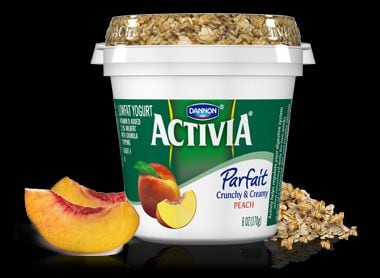In 2012, Dannon, General Mills and Cabot Creamery were all targeted in separate class action lawsuits alleging that their yogurts were misbranded because they contained milk protein concentrate (MPC) and/or whey protein concentrate (WPC), which the plaintiffs argued are not permitted for use in yogurt.
According to plaintiff Kristie Conroy, who filed a complaint vs Dannon last September, the FDA’s standard of identity for yogurt (proposed in 1981) sets out an exhaustive list of ‘other optional ingredients’ that may be used in yogurt, which does not include MPCs.
“Activia… is not made the way yogurt is supposed to be made. Unlike other brands, Dannon adds water and fillers to Activia in order to make a cheaper product”, alleged Conroy.
“The FDA’s standard of identity for yogurt does not list … MPCs in the list of permitted ingredients. Therefore they are prohibited.”
She also alleged that MPC is not generally recognized as safe (GRAS).
However, Dannon argued that the FDA has in fact permitted the use of MPC in yogurt for 30 years; that Conroy’s claim that MPC is not safe for use in yogurt is not supported by any evidence; and that the FDA has primary jurisdiction over such matters.
Judge: MPC may be added as an ‘other optional ingredient’ to yogurt
The complaints against General Mills and Cabot were dismissed in December 2012 and February 2013 respectively, while Conroy’s case against Dannon was dismissed by a federal judge in New York last week.
Explaining his decision, US district judge Vincent L. Briccetti said that the FDA had stayed (not put into effect or enforced) the effective date of certain provisions in its proposed yogurt standard of identity of 1981.
He added: “The effect of the stay is that the FDA’s 1981 proposed limitation on what milk-derived ingredients may be added is not in effect… [therefore] other optional milk-derived ingredients may be added.”
Meanwhile, in 2004, the FDA expressly stated that MPC may be added to yogurt, he said. “This statement is contained in an FDA-issued memorandum from the Milk Safety Branch to all Regional Food and Drug Directors. The includes questions and answers from a Regional Milk Seminar, an Advanced Milk Processing Course, and a Special Problems in Milk Protection Course held during the second half of fiscal year 2004.
“At this seminar the question was asked: ‘May whey protein concentrate and/or milk protein concentrate be used as ingredients in yogurt to increase the nonfat solids content?’ And the answer given was: Yes.”
Plaintiff has not presented any evidence to suggest MPC is not safe
He concluded:“Because of the stay imposed in 1982, MPC may be added as an ‘other optional ingredient’ to yogurt. Therefore, Activia is not misbranded and plaintiff’s state law claims based on that argument must be dismissed.”
As for whether MPC is safe, the FDA “would not have made the clear and unambiguous statement that MPC may be used in yogurt if that same permissible addition would render the yogurt illegally adulterated”, he said.
Moreover, “because the plaintiff fails to allege any facts plausibly to support her contention that MPC is not safe and suitable, she fails to nudge her claim across the line from conceivable to plausible.”
Dannon: Lawsuit was 'poorly informed and frivolous'

Michael J. Neuwirth, senior director of public relations at The Dannon Company, welcomed the decision.
“Activia is a yogurt and is correctly labeled”, he said. “Activia yogurt is enjoyed by millions of people every day, and we believe the allegations in this lawsuit were poorly informed and frivolous.”
